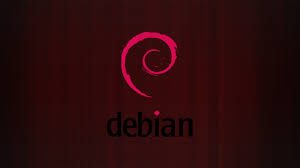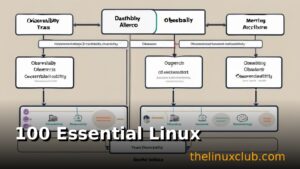CentOS Complete Guide: Legacy Versions and Current Stream 9/10

🎯 Key Takeaways
- Introduction to CentOS
- Current CentOS: Stream 9 and Stream 10
- The CentOS Linux to CentOS Stream Transition
- CentOS Legacy Versions: Historical Archive
- CentOS Alternatives After the Stream Transition
📑 Table of Contents
CentOS (Community Enterprise Operating System) has been a cornerstone of enterprise Linux computing for nearly two decades. From its origins as a free RHEL rebuild (CentOS Linux 5-8) to its transformation into CentOS Stream, the project has evolved significantly. This comprehensive guide covers the complete CentOS history, legacy versions, the shift to CentOS Stream, and current CentOS Stream 9 and 10 releases that power modern enterprise infrastructure.
📑 Table of Contents
- Introduction to CentOS
- Current CentOS: Stream 9 and Stream 10
- CentOS Stream 9 (Current Stable – 2024/2025)
- CentOS Stream 10 (Development – 2024/2025)
- Download Current CentOS Stream
- The CentOS Linux to CentOS Stream Transition
- What Changed in December 2020
- CentOS Stream Philosophy
- CentOS Legacy Versions: Historical Archive
- CentOS 5: Historical Foundation (2007-2017)
- CentOS 6: Enterprise Workhorse (2011-2020)
- CentOS 7: Modern Enterprise Standard (2014-2024)
- CentOS 8: The Controversial End (2019-2021)
- CentOS Alternatives After the Stream Transition
- For Stable RHEL Clones
- For Development/Testing
- CentOS Stream Use Cases
- When to Use CentOS Stream
- When to Avoid CentOS Stream
- Installing CentOS Stream 9
- Download and Installation
- Post-Installation Configuration
- Frequently Asked Questions
- What is the difference between CentOS Linux and CentOS Stream?
- Should I use CentOS Stream 9 for production servers?
- Can I migrate from CentOS 7 to CentOS Stream 9?
- Will CentOS Stream 9 receive 10 years of support like CentOS Linux did?
- What happened to CentOS 8 users after the 2021 EOL?
- Is CentOS Stream stable enough for everyday use?
- Can I get commercial support for CentOS Stream?
- How do I download old CentOS versions like CentOS 5 or 6?
- What is the future of CentOS Stream?
- How does CentOS Stream compare to Fedora?
- Conclusion
Introduction to CentOS
The CentOS Project is a community-driven free software effort focused on delivering a robust open source ecosystem. For users, it offers a consistent, manageable platform suitable for wide variety of deployments. For open source communities, CentOS provides a solid, predictable base to build upon, along with extensive resources to build, test, release, and maintain code. The project has expanded availability across numerous cloud providers, offering official images for Amazon AWS, Google Cloud Platform, Microsoft Azure, and more.
Current CentOS: Stream 9 and Stream 10
CentOS Stream 9 (Current Stable – 2024/2025)
CentOS Stream 9 is the current production release, serving as the upstream development platform for RHEL 9. Released in December 2021, Stream 9 provides:
- Release Date: December 2021
- Kernel Version: 5.14+ (continuously updated)
- Support Until: May 31, 2027 (full lifecycle)
- Base: Upstream for RHEL 9.x series
- Key Features: Enhanced security (SELinux, FIPS 140-3), improved container tools (Podman 4.x), modern development toolchains
- Architecture Support: x86_64, aarch64 (ARM64), ppc64le, s390x
CentOS Stream 10 (Development – 2024/2025)
CentOS Stream 10 is currently in development as the upstream for the upcoming RHEL 10:
- Status: Active development (as of 2024-2025)
- Expected Stable: Mid-2025
- Purpose: Development platform for RHEL 10
- Target Users: Developers, testers, early adopters
- Updates: Rolling release model with continuous integration
Download Current CentOS Stream
# CentOS Stream 9 ISO
https://www.centos.org/download/
# Quick installation via cloud images
# AWS, Azure, GCP: Available in marketplace
# Docker: docker pull quay.io/centos/centos:stream9The CentOS Linux to CentOS Stream Transition
What Changed in December 2020
In December 2020, Red Hat announced CentOS Linux 8 would end support in December 2021 (originally planned for 2029), shifting focus to CentOS Stream. This fundamental change transformed CentOS from a downstream RHEL rebuild to an upstream development platform:
- Old Model (CentOS Linux): RHEL -> CentOS (stable rebuild)
- New Model (CentOS Stream): Fedora -> CentOS Stream -> RHEL (rolling preview)
CentOS Stream Philosophy
CentOS Stream provides a continuously delivered distribution that tracks just ahead of RHEL. The development flow is: Fedora -> CentOS Stream -> RHEL. The old downstream model (RHEL -> CentOS Linux) has been discontinued. This enables:
- Earlier access to RHEL features
- Community influence on RHEL development
- Continuous integration testing platform
- Reduced delay between innovation and enterprise deployment
CentOS Legacy Versions: Historical Archive
CentOS 5: Historical Foundation (2007-2017)
Release Information:
- Release Date: April 2007
- End of Life: March 31, 2017
- Based on: RHEL 5
- Kernel: 2.6.18
- Supported Until: 10 years of updates
Key Features of CentOS 5:
- Xen virtualization support
- SELinux enabled by default
- ext3 filesystem (ext4 in later updates)
- Cluster Suite for high availability
- Python 2.4, GCC 4.1
CentOS 5 Minor Releases:
CentOS 5 received 11 minor updates (5.0 through 5.11) over its 10-year lifecycle, each corresponding to RHEL 5 point releases. The final release, CentOS 5.11, was released in September 2014 and received security updates until 2017.
Historical Downloads (Archive Only):
CentOS 5.0 | CentOS 5.1 | CentOS 5.2 | CentOS 5.3 | CentOS 5.4 | CentOS 5.5 | CentOS 5.6 | CentOS 5.7 | CentOS 5.8 | CentOS 5.9 | CentOS 5.10 | CentOS 5.11
CentOS 6: Enterprise Workhorse (2011-2020)
Release Information:
- Release Date: July 2011
- End of Life: November 30, 2020
- Extended Support: Available through third parties until 2024
- Based on: RHEL 6
- Kernel: 2.6.32
- Support Duration: 10 years (extended to 11 years)
Key Features of CentOS 6:
- ext4 filesystem default
- KVM virtualization (replaced Xen)
- Upstart init system (transitional)
- Python 2.6, GCC 4.4
- Improved power management
- Enhanced security (FIPS 140-2)
Why CentOS 6 Was Popular:
CentOS 6 became the most widely deployed enterprise Linux distribution of its era due to exceptional stability, extensive software compatibility, and long support lifecycle. Many organizations ran CentOS 6 for the entire 10-year lifecycle and some extended beyond 2020 with third-party support.
Migration from CentOS 6:
With CentOS 6 end-of-life in November 2020, organizations migrated to:
- CentOS 7 or CentOS Stream 8/9
- AlmaLinux or Rocky Linux (RHEL clones)
- RHEL with subscription
- Ubuntu LTS or other distributions
CentOS 7: Modern Enterprise Standard (2014-2024)
Release Information:
- Release Date: July 2014
- End of Life: June 30, 2024
- Based on: RHEL 7
- Kernel: 3.10
- Support Duration: 10 years
Major Improvements in CentOS 7:
- Systemd: Replaced Upstart, modern init system
- XFS Default: Replaced ext4 as default filesystem
- Firewalld: Dynamic firewall management
- Docker Support: Native container runtime
- Python 2.7: Updated programming environment
- MariaDB: Replaced MySQL
CentOS 7 in Production:
CentOS 7 remains one of the most deployed server operating systems as of 2024, powering millions of web servers, databases, and enterprise applications. Its June 2024 EOL has prompted massive migration efforts to CentOS Stream 9, AlmaLinux 9, or Rocky Linux 9.
CentOS 8: The Controversial End (2019-2021)
Release Information:
- Release Date: September 2019
- End of Life: December 31, 2021 (shortened from 2029)
- Based on: RHEL 8
- Kernel: 4.18
- Actual Support: ~2.5 years (instead of 10 years)
CentOS 8 Features:
- DNF package manager (replaced YUM)
- Podman, Buildah (Docker alternatives)
- Modular repositories (AppStreams)
- Python 3.6, GCC 8.2
- Wayland default display server
The CentOS 8 Controversy:
In December 2020, Red Hat announced CentOS Linux 8 support would end December 2021 instead of 2029, shocking the community and enterprise users. This decision led to the creation of AlmaLinux and Rocky Linux as community RHEL clones, and accelerated CentOS Stream adoption.
CentOS Alternatives After the Stream Transition
For Stable RHEL Clones
- AlmaLinux: 1:1 RHEL binary compatible, CloudLinux backed
- Rocky Linux: 1:1 RHEL compatible, CentOS founder led
- Oracle Linux: RHEL compatible with Oracle support
For Development/Testing
- CentOS Stream 9: Upstream for RHEL 9, continuous delivery
- Fedora: Cutting-edge features, 6-month release cycle
CentOS Stream Use Cases
When to Use CentOS Stream
- Development Environments: Test upcoming RHEL features early
- CI/CD Pipelines: Continuous integration testing platforms
- Non-Critical Production: Web servers, application servers tolerant of updates
- Container Base Images: Modern containerized applications
- Contributing to RHEL: Influence enterprise Linux direction
When to Avoid CentOS Stream
- Mission-Critical Production: Systems requiring absolute stability
- Compliance Requirements: Regulations requiring point-release stability
- Legacy Applications: Software requiring specific RHEL point releases
- Change-Averse Organizations: Environments preferring predictable updates
Installing CentOS Stream 9
Download and Installation
# Download CentOS Stream 9 ISO
wget https://mirrors.centos.org/mirrorlist?path=/9-stream/BaseOS/x86_64/iso/CentOS-Stream-9-latest-x86_64-dvd1.iso
# Create bootable USB
sudo dd if=CentOS-Stream-9-latest-x86_64-dvd1.iso of=/dev/sdX bs=4M status=progress
syncPost-Installation Configuration
# Update system
sudo dnf update -y
# Install EPEL repository
sudo dnf install epel-release -y
# Enable CodeReady Builder (PowerTools equivalent)
sudo dnf config-manager --set-enabled crb
# Install development tools
sudo dnf groupinstall "Development Tools" -yFrequently Asked Questions
What is the difference between CentOS Linux and CentOS Stream?
CentOS Linux (versions 5-8) was a downstream rebuild of RHEL released after RHEL, providing identical packages for free. CentOS Stream is an upstream rolling-release distribution that sits between Fedora and RHEL, receiving updates before they appear in RHEL. CentOS Linux provided point-release stability; CentOS Stream provides continuous delivery with minor version updates. Linux is discontinued; Stream is the current CentOS model.
Should I use CentOS Stream 9 for production servers?
It depends on your requirements. CentOS Stream 9 is suitable for development, testing, and non-critical production workloads. For mission-critical production requiring point-release stability, consider AlmaLinux 9 or Rocky Linux 9 (RHEL clones) or RHEL with subscription. Stream receives updates continuously, which some organizations prefer for staying current, while others prefer the tested point-release model of RHEL clones.
Can I migrate from CentOS 7 to CentOS Stream 9?
Yes, but it requires an in-place upgrade or fresh installation. The elevate project provides migration paths from CentOS 7 to RHEL-based systems including CentOS Stream 9. However, due to significant changes (systemd, Python 3, package differences), thorough testing is essential. Many organizations opt for fresh Stream 9 installations rather than in-place upgrades for critical systems.
Will CentOS Stream 9 receive 10 years of support like CentOS Linux did?
CentOS Stream 9 will receive updates until approximately May 31, 2027, corresponding to RHEL 9 full support phase. This is shorter than the traditional 10-year CentOS Linux lifecycle but follows the RHEL full support window. Stream 10 will overlap before Stream 9 ends, providing continuous upgrade paths.
What happened to CentOS 8 users after the 2021 EOL?
After CentOS 8 reached end-of-life on December 31, 2021, users migrated to: CentOS Stream 8/9 for development environments, AlmaLinux 8 or Rocky Linux 8 for production requiring RHEL compatibility, RHEL 8 with subscription for enterprise support, or alternative distributions like Ubuntu. Migration tools were provided by AlmaLinux and Rocky Linux projects for seamless conversion from CentOS 8.
Is CentOS Stream stable enough for everyday use?
Yes, CentOS Stream 9 is stable for everyday use, development, and many production scenarios. It undergoes continuous integration testing and receives updates that will become RHEL releases. While it updates more frequently than point-release distributions, these updates are tested and generally safe. Many organizations successfully run CentOS Stream in production for non-mission-critical services, development platforms, and container hosts.
Can I get commercial support for CentOS Stream?
Red Hat provides community support through forums and mailing lists but no commercial SLA-backed support for CentOS Stream. For commercial support, consider: RHEL subscription from Red Hat, third-party support from vendors like TuxCare (for other RHEL-based distros), or using AlmaLinux/Rocky Linux with commercial support from their respective foundations or partners.
How do I download old CentOS versions like CentOS 5 or 6?
Legacy CentOS versions are archived at vault.centos.org. While downloads are available for historical or compatibility testing, these versions are end-of-life and receive no security updates. Using EOL versions in production creates significant security risks. If you must run legacy applications, consider virtualization/containers with strict network isolation or extended lifecycle support from third-party vendors.
What is the future of CentOS Stream?
CentOS Stream is Red Hat’s long-term vision for community enterprise Linux development. Stream 9 is current, Stream 10 is in development for future RHEL 10, and the model will continue with Stream 11, 12, etc. Red Hat is committed to CentOS Stream as the upstream development platform for RHEL, providing continuous community contribution opportunities and early access to enterprise Linux innovations.
How does CentOS Stream compare to Fedora?
Fedora is bleeding-edge with 6-month releases, latest packages, and rapid innovation. CentOS Stream is more conservative, tracking just ahead of RHEL with longer support lifecycles (5+ years vs Fedora’s 13 months). Use Fedora for latest features and desktop computing; use CentOS Stream for enterprise server environments, development platforms mimicking RHEL, and contributing to RHEL development. Stream offers better stability than Fedora while being more current than RHEL.
Conclusion
CentOS has evolved from a free RHEL rebuild (CentOS Linux 5-8) into a rolling-release upstream development platform (CentOS Stream). While the 2020 announcement ending CentOS Linux surprised many, CentOS Stream has found its place in the enterprise Linux ecosystem as a development and testing platform that influences RHEL direction. Current CentOS Stream 9 provides modern, continuously-updated enterprise Linux suitable for many production use cases, development environments, and organizations wanting to stay current with RHEL innovations.
For those requiring point-release stability identical to classic CentOS Linux, AlmaLinux and Rocky Linux have filled that role excellently. The CentOS legacy of versions 5, 6, 7, and 8 powered millions of servers worldwide and established enterprise Linux as viable alternative to proprietary operating systems. Today’s CentOS Stream continues that mission with a different approach—fostering community-driven development of the next generation of enterprise Linux.
CentOS Stream: centos.org
Download Stream 9: CentOS Downloads
Legacy Archive: CentOS Vault
Documentation: CentOS Docs
Was this article helpful?
About Ramesh Sundararamaiah
Red Hat Certified Architect
Expert in Linux system administration, DevOps automation, and cloud infrastructure. Specializing in Red Hat Enterprise Linux, CentOS, Ubuntu, Docker, Ansible, and enterprise IT solutions.


